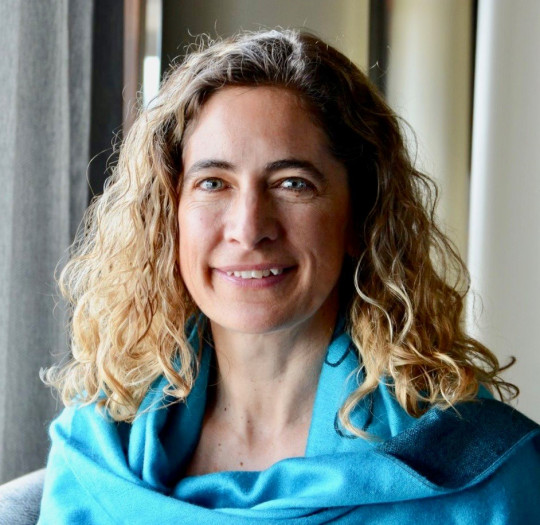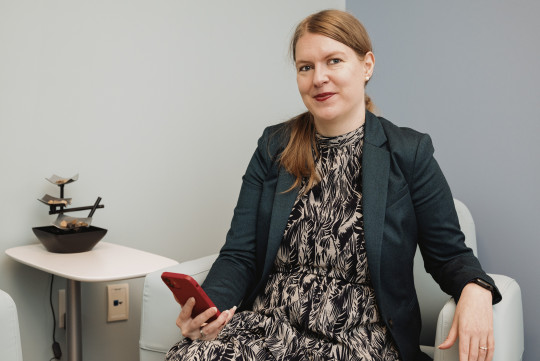Dr. Sandra Meier, photo by Ryan Wilson, IWK
Researchers at IWK Health are looking at how mobile sensing technologies may be used to measure youth mental health. Through the PROSIT app clinicians are able to track daily activities which can indicate how a user is doing and when they may need help.
Originally published in JMIR Publications ‘A Mobile Sensing App to Monitor Youth Mental Health: Observational Pilot Study’ aims to explore whether passively collected smartphone sensor data can be used to predict internalizing symptoms among youth in Canada.
Improving daily life behaviours of patients is often an important component in the prevention and clinical management of mental disorders in youth. Behaviours such as physical activity, sleep, and screen use in youth can inform clinical monitoring, prevention, and treatment. Surprisingly, this information is still often obtained via self-reports as part of clinical care.
However, clinical decision-making based on such subjective information is challenging, as changes in behaviours may be context-dependent or too subtle for patients to recognize. Recall in patients might also not be accurate, potentially biased by current symptom severity and environmental stressors. This indicates there is a need to identify a more objective methodology for tracking physical activity, sleep, and screen use in youth.
“Embedding mobile sensing apps into clinical care can indeed provide a valuable bridge between patients and their care providers, offering continuous support and monitoring beyond traditional in-person sessions,” says Dr. Sandra Meier, Canada Research Chair in Developmental Psychopathology and Youth Mental Health and principal investigator. “Tracking daily lifestyle behaviours such as sleep, physical activity, and screen use through mobile sensing can offer patients valuable insights into their own health patterns. This data can empower them to make informed decisions about their lifestyle and actively participate in their treatment journey.”
“This research gives a unique perspective on how, when and potentially why youth use their phones and how this relates to their mental health,” says Dr. Alexa Bagnell, Chief of Psychiatry at IWK Health and Professor & Head, Division of Child and Adolescent Psychiatry at Dalhousie University. “This information can help in earlier detection, including self-monitoring and targeted interventions. Using these patterns to predict mental health and wellbeing is a future tool in health care, and IWK is on the leading edge of this work with Dr. Meier and her team.”

Dr. Alexa Bagnell
Mental disorders are among the top ten global causes of years lived with disability and severely impact not only youth’s psychosocial development, but also family and social functioning, long-term health outcomes, and increase the risk of death by suicide. Unhealthy daily life behaviours may not only increase the risk of developing a mental disorder, but also can contribute to the maintenance, chronicity, and disability associated with these disorders.
“This proactive approach can lead to more personalized and effective care, tailored to each patient's unique needs,” says Meier. “The ability to send individualized health tips and support messages between sessions via the mobile sensing app can enhance patient engagement and adherence to treatment plans. By staying connected with their care providers outside of scheduled appointments, patients may feel more supported and motivated to actively participate in their treatment.”
This work was partly funded by the Canadian Institute for Health Research (CIHR) Canadian Research Chairs (CRC) stipend, Canadian Foundation for Innovation (CFI) John R. Evans Leaders Fund (JELF), Dalhousie Medical Research Fund (DMRF), COVID-19 Research Grant, and Canadian Institute for Health Research (CIHR) project grants.
